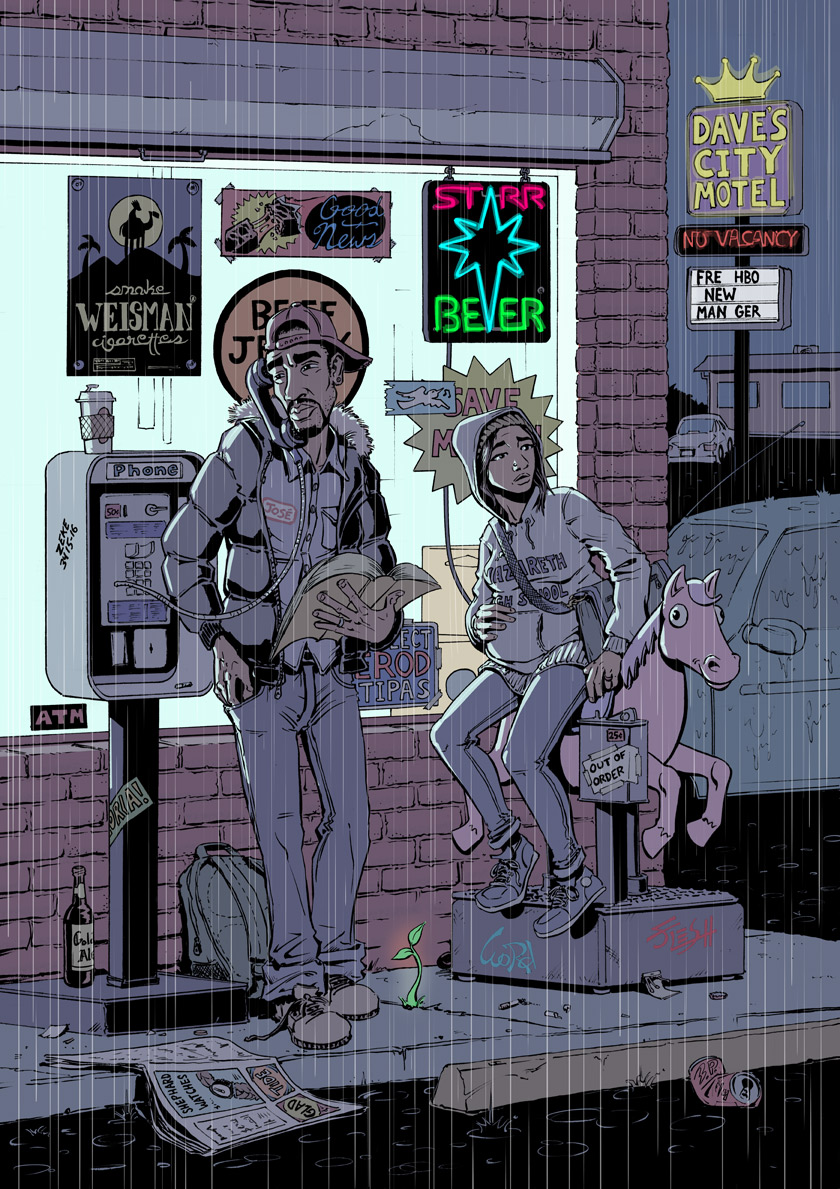
It is not like we may be travelling afar. We have had such a spate of strikes recently that may might be reluctant to take the train, travel down the motorway or even fly. Then again we might also be awash with wrapping paper, and still looking for the replacement batteries. Where are we going now?

In our passage for today, we might read of the ‘escape from Egypt‘ in Matthew 2:13-23. The wise men have scarpered down a back alley to escape that nasty Herod. He was declared by Rome to be the King of the Jews, so was mightily unimpressed that another “King of the Jews’ had been born in Bethlehem, where such rulers have been considered to have come from – and he hadn’t.
Where is God in all this? Well, God was there, in the thick of it, in the stinky mess of seeking
what is right for all people both in terms of justice and economics.
Aren’t the Gospel readings the same?
We hear of this story in both Matthew and Luke’s Gospels. They might refer to travelling but it is really why they are doing so which seems to matter – mainly because they don’t agree on the details. Where are they going now?
In Matthew we have this Jesus from Bethlehem, where the heavenly skies have produced a star to declare him as King, and so is worshipped by such monarchs.
In Luke, Jesus is from Nazareth, but is forced by a Census to be born in Bethlehem, is put into a downright filthy place to be born, and only gets some passing shepherds – where are the presents?
Which Herod?
The Herod we might assume is the Herod who runs in Jerusalem and has a run in with John the Baptist. The Herod at Jesus’ birth is his father*. Interestingly, the Joseph, him of the technicolour dreamcoat, and the one who dreamt a lot, is now seen as the new Joseph who has a dream to take his new family into a foreign land. Where are they going?
There is a subsequent rebellious moment when Herod (the son) gets very angry indeed and supposedly kills off all the children under 2 years old. We might have thought that this would have been recorded in there annuls of history, the cries of the families of Bethlehem heard over the millennia. Possibly Bethlehem, according to scholars, had less than 20 children there given its size.
What might it mean for us?
The family are now deemed to be refugees, immigrants. The family we deem so special to adorn so many Christmas cards may be ones we despise as invaders of our shores. The holy family may be the ones that stand outside of our local shop wondering what they might be able to buy, when we are in a hurry to get that loaf of bread and some milk.

In Matthew, the whole place is a mess of political injustice, where the rich get richer, and the poor disappear – where some are forced to flee.
In Luke, the whole place is an economic quagmire, where the homeless are forgotten, where some are forced to flee.
Sound vaguely familiar?
When we look at our world today, many will question the whole concept of God. Where is God in all this? Well, God was there, and here, in the thick of it, in the stinky mess of seeking what is right for all people both in terms of justice and economics.
If we consider Christmas to be an extravagant time of lashing out on presents, food and drink, then that is very much akin to the Roman festival of Saturnalia.
Possibly Christmas is about being, being with people we so deep care about,
going places if we can to be as one, and seeking to help others
in whatever circumstances they are in
– because we care, because we love.
Historical footnote
- Herod died in 4 BCE which means Jesus was probably born in 6 BCE – Dionysius Exiguus (who calculated the Common Era) did so in 533 CE. It was based on the birth of Jesus in relation to the founding of Rome and had the death of Herod off by 4 years (Herod died 750 years after the founding of Rome, not 754). R. Alan Culpepper, Feasting on the Word: Year A, Volume 1: Advent through Transfiguration.

I found the dialogue interesting and I enjoyed it